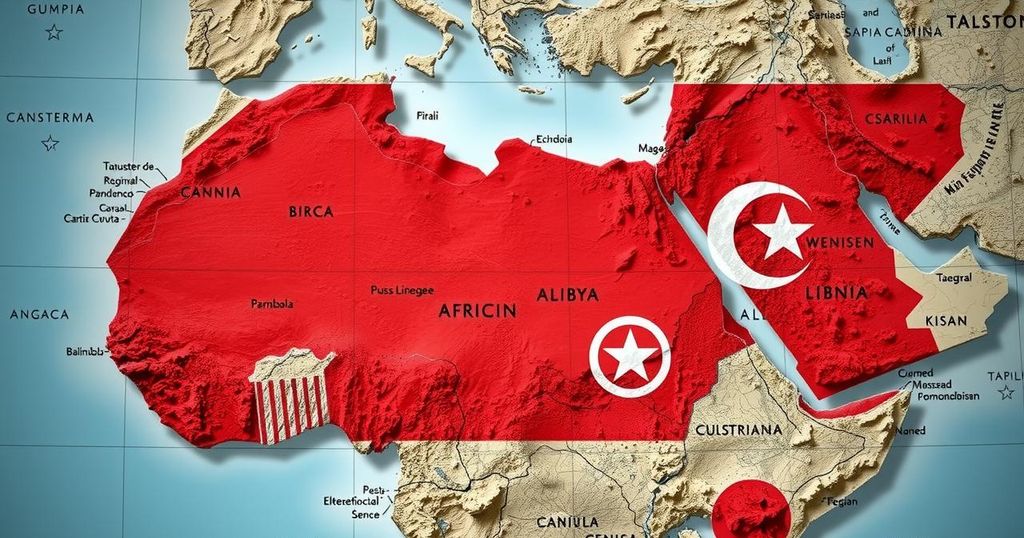Russia’s Strategic Pivot: Libya as the New Launchpad Post-Assad

After the fall of Bashar al-Assad in Syria, Russia is redirecting its attention towards Libya as a strategic foothold to maintain its influence in North Africa. With significant military deployments in Libya supporting Khalifa Haftar, experts indicate that this move serves as both a tactical response to disruptions in Syria and an endeavor to continue fostering Russian interests against Western powers. However, the complexities of Libyan politics present challenges for Russia that differ greatly from those encountered in Syria.
The uncertainty following the downfall of Syrian President Bashar al-Assad has compelled Russia to reposition its geopolitical strategy, particularly with an increased focus on Libya. Following Assad’s removal, Russia, which has established a military port and air base in Syria facilitating operations spanning the Mediterranean to sub-Saharan Africa, finds its strategic model jeopardized. Experts suggest that Libya, where Russian mercenaries already support Khalifa Haftar, could serve as a pivotal replacement for Russia’s objectives in Syria. Russia’s deployment of military resources, including radars and defense systems, from Syria further illustrates its intent to maintain influence in the region.
As Russian activities intensify in Libya, the implications ripple across the geopolitical landscape, notably impacting Western interests. Analysts assert that while Assad’s regime provided a low-profile base for Russian operations, Libya presents far more complexities, with numerous external players involved, including Turkey, Egypt, and the United Arab Emirates. Despite its ambitions, Moscow may struggle to achieve the same level of clandestine operations in Libya compared to Syria, where external scrutiny was markedly less. Thus, the Kremlin’s plans to fortify its position may prove complicated with the pre-existing dynamics within Libya and the relationships at play.
Furthermore, the ongoing intrigue surrounding Russian military transfers to Libya raises alarms among NATO members and Libya’s neighboring states. Experts caution that while Russia seeks continuity in wielding influence in North Africa, it must navigate the intricate political landscape and avoid overcommitting to figures like Haftar. The situation remains fluid, with many watching how Russia adapts its strategies amidst changing power dynamics in Libya and the broader region.
Following the fall of Bashar al-Assad in December 2023, Russia is recalibrating its strategy in North Africa, primarily focusing on Libya as a potential alternative for its regional military operations. The Assad regime served as a crucial ally for Russia, providing a strategic foothold against NATO and facilitating operations in nearby regions such as the Mediterranean and Africa. Experts are concerned about the ramifications of Assad’s absence on Russia’s capabilities and intentions in Libya, particularly with the involvement of various external powers and the complex political landscape.
In summary, Russia’s shift towards Libya as a potential new base of influence reflects its need to adapt to a rapidly changing geopolitical environment following the fall of Assad. Although Moscow is actively strengthening its presence in Libya by supporting Haftar, it must carefully navigate the complexities of the local political dynamics and relationships with other external players. The consequences of this repositioning bear significant implications, not just for regional stability but also for the broader balance of power involving Western interests in North Africa.
Original Source: thedefensepost.com





